Deus Ex: Mankind Divided – The Next Revolution?
One of the earliest articles I ever wrote for Final Boss Fight was about Deus Ex Human Revolution. I wrote about whether or not augmentations of the type depicted in the game made us more or less human. Human Revolution took us on a journey that asked what it meant to be a person, seen through the eyes of the main hero Adam Jensen. His journey from flesh and blood to machine was a great way to convey the changes the world was going through, and by choosing what path his development would take, players invested themselves in finding the answer to what makes us us, and whether or not technology would add or take away from that.
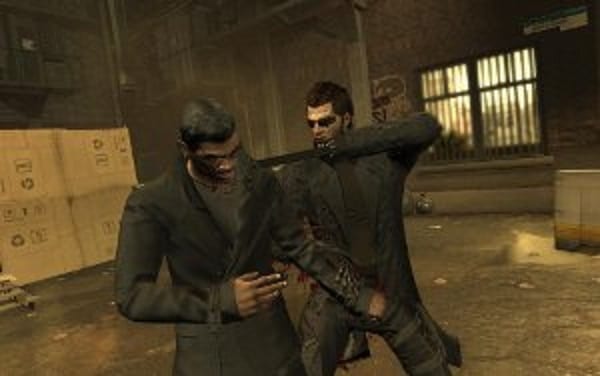
And there were arm blades. Mustn’t forget the arm blades.
The recent release of Deus Ex: Mankind Divided takes the story in a new direction. Rather than the brave new world of technology and possibility shown in the first game, Mankind Divided brings us a world that hates and distrusts augmented humans – a direct result of the events of the first game. Suddenly, Adam Jensen finds himself shunned by the very people he fought to save. The tension between natural humans and augmented humans is very much at the forefront as Adam joins an anti-terrorist group to investigate a plot designed to drive both factions into open conflict.
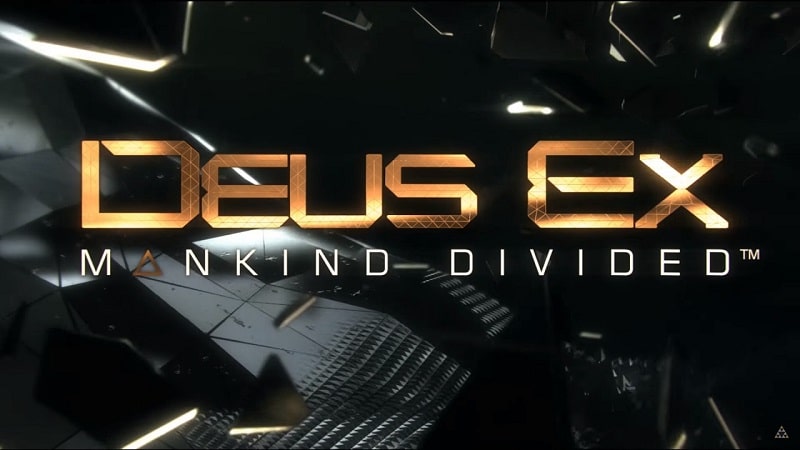
The opening sequence is suitably dramatic.
I could talk at length about how much the gameplay has evolved or changed from the original. I could talk about the new options available to the main character – and the questions about how human can he be if others can simply modify and change him on a whim. I could even say much about how the human/augmented conflict is played out and how even the player is under suspicion simply because of what they are. But really what I want to talk about is the world itself.
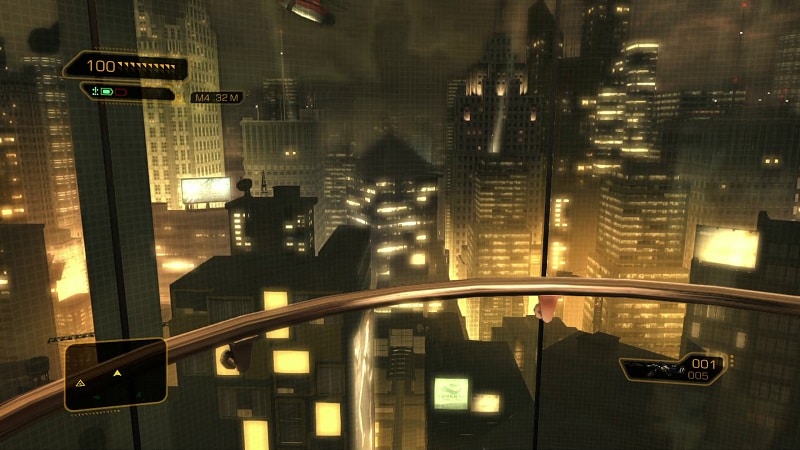
The first view of Detroit. This is Human Revolution in a nutshell.
One of the things that gripped me in the first game was the city of Detroit itself. A dazzling display of neon lights and soaring skyscrapers, open shops and blinking lights, Detroit was visually impressive. The fact that it was always night time lent just the right atmosphere. This was the perfect representation of a world reaching the end of its tether, with the promises of augmentation met with hope and fear in equal measure. The soft glow of the neon signs and imposing building faces fit in with the gritty aesthetic of Deus Ex.
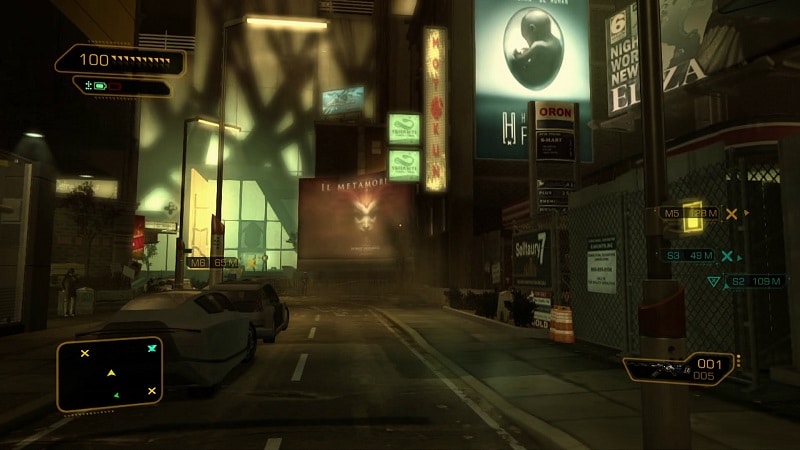
Billboards and shop signs were everywhere
The primary colours of the game were black and gold – as evidenced by Human Revolution’s marketing materials. As I understand it, the decision to use the least amount of purple and blue possible was due to the desire to distance itself as much as possible from Invisible War, where purple was the predominant colour. The result was amazing, with the city given an amber glow reminiscent of the light pollution you see in many real world cities.
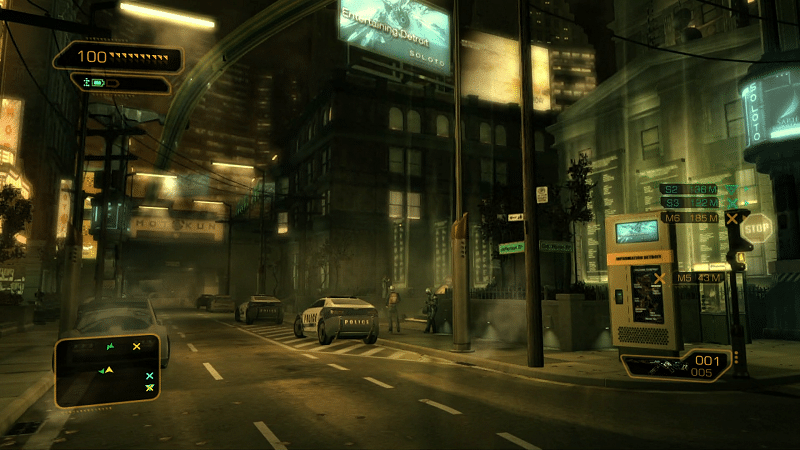
This was a city that never slept.
Later on in the game, when you visited the Chinese city of Hengsha, you entered a world that if anything was even busier than Detroit. Hengsha was quite literally under the shadow of the great complex towering above it. The slums and shanties again gave the impression of a downtrodden oppressed population suffering while the rich got richer. Stalls were open plying their wares, police roamed the streets armed to the teeth, people were living their lives, it was all unforgettable.
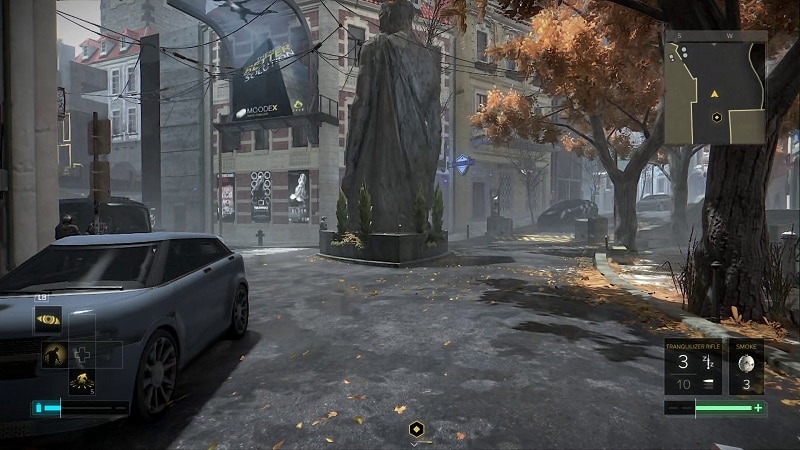
What a difference five years makes.
Then we come to Mankind Divided. This time we’re limited to one city – Prague – albeit a city with a few districts. It’s likely that the total area of Prague is more than Detroit and Hengsha combined, but somehow it feels smaller. I think the main difference between the two is quite simple – Prague is set during the day. You don’t get the neon lights here, although you do get one or two skyscrapers. Instead it feels too clean and bright compared to the grit of Human Revolution. The human/aug tensions are visible everywhere, as are the heavily armed police, but it feels like an addition to the world rather than an integral part of it.
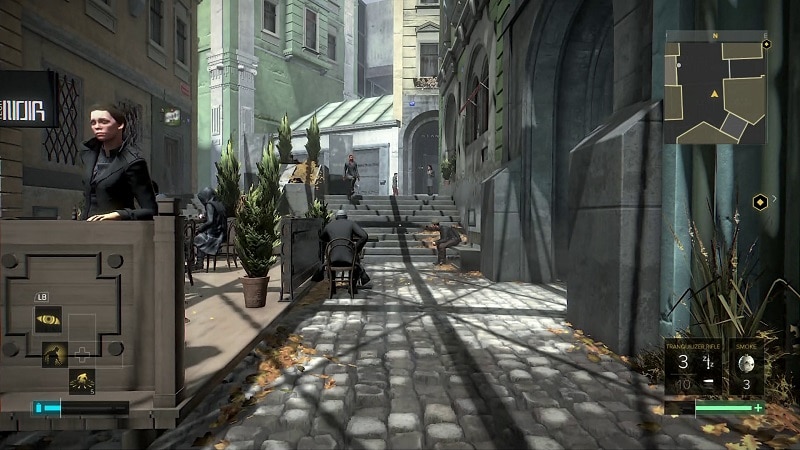
The light! It blinds!
There is plenty to see in Prague though. Aside from the monuments and statues you can watch moments in the lives of the people around you – on one occasion I watched as a pair of tourists had their picture taken by a local inhabitant. There are streets and alleys to explore, but again it lacks Human Revolution’s atmosphere. There’s also a lot less of the signature black and gold colour scheme, enough that sometimes it feels like a completely different game. Of the two I prefer Human Revolution. Its grittiness and musings on the nature of humanity spoke to me in a way that Mankind Divided hasn’t yet achieved. But hey, that’s just my opinion.
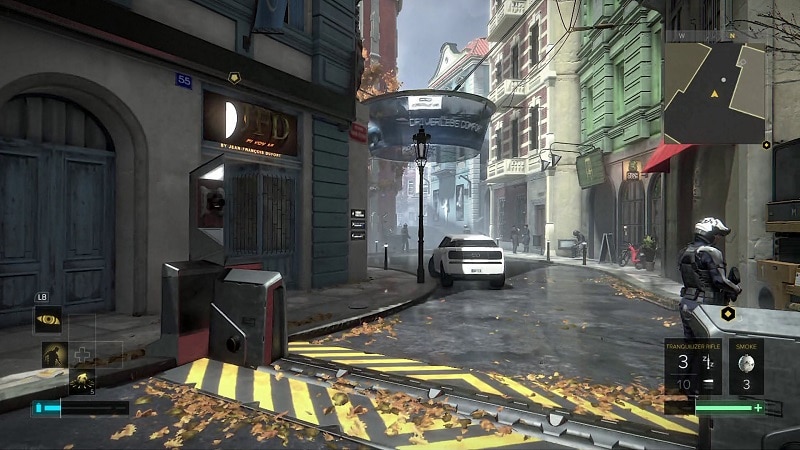
He’s going to ask to see my papers. I know it.